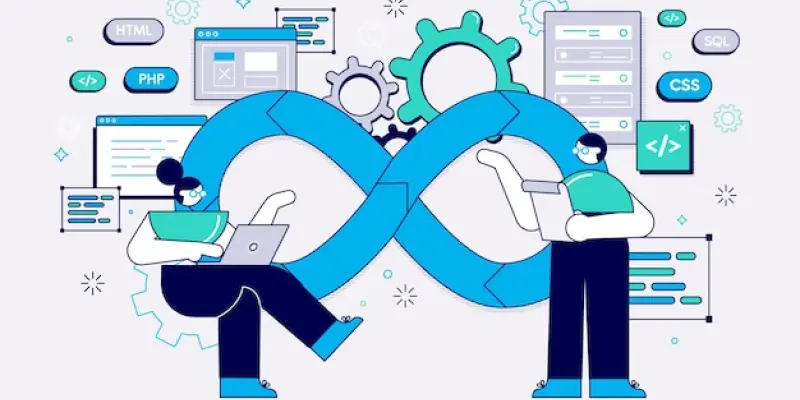The intricacies of Infrastructure as Code (IaC) have been a persistent challenge for DevOps professionals aiming to maintain a seamless workflow. Spacelift, an enterprise specializing in IaC, has identified a significant pain point: more than 40 percent of companies reportedly attempt infrastructure deployment over four times before achieving success. Missteps in development can lead to extended downtimes, resulting in inefficiencies and increased costs. In response, Spacelift has introduced Saturnhead AI, designed to aid in swift and accurate troubleshooting. The solution aims to alleviate the pressures faced by engineers who frequently have to analyze extensive logs to pinpoint errors. By focusing on real-time requirements and ensuring quick resolution of failed deployments, Saturnhead AI seeks not only to enhance efficiency but also to meet the dynamic demands of organizations and their clients.
Enhancing DevOps Through Automation
Saturnhead AI serves DevOps teams by simplifying the traditionally labor-intensive process of analyzing IaC runner phase logs. When failures occur during deployment, identifying root causes and rectifying them swiftly becomes crucial. Saturnhead AI leverages artificial intelligence to automate this troubleshooting process, turning what once took hours into a matter of seconds. The core mechanism is a generative AI engine that evaluates run logs in real time, thereby offering immediate feedback. Key insights are derived without the need for manual log sifting, which is both time-consuming and prone to human error. Users can choose from large language models such as Amazon Web Services’ Bedrock (Anthropic) or Google Gemini to power their Saturnhead AI configurations, allowing flexibility depending on existing infrastructure preferences. This approach not only saves time but also optimizes resources by reducing operational bottlenecks.
Actionable Feedback and Improved Efficiency
Saturnhead AI’s functionality is split into two primary options: Summarize and Explanation. The Summarize function provides an overarching view of each step within a run, offering simple and concise reports even if the run is unsuccessful. Conversely, the Explanation function delves deeper, offering detailed troubleshooting reports that cover all phases of a run—Initialization, Planning, and Applying. This comprehensive analysis identifies specific issues, lays out likely causes, and suggests step-by-step actions to resolve these problems efficiently. Such detailed and actionable feedback minimizes guesswork and empowers teams to address failures with confidence, enhancing overall productivity. With the ability to significantly reduce run failure-related troubleshooting by over 1,000 cases per week, Saturnhead AI could redefine the approach to handling IaC, allowing DevOps teams to focus on innovation rather than problem-solving.
Future Considerations for DevOps Solutions
In the rapidly changing world of DevOps, Saturnhead AI brings a potential paradigm shift in addressing challenges. Its ability to significantly reduce resolution times and streamline operations extends benefits beyond immediate problem-solving. As Saturnhead AI becomes more widely adopted, teams can transition from merely tackling obstacles to spearheading innovations and gaining a competitive edge. Insights from automated diagnostics can provide valuable guidance for strategic infrastructure decisions, helping to improve long-term organizational success. Given the swift pace of technological progress, adopting advanced solutions like Saturnhead AI is essential for businesses seeking to uphold resilience and adaptability in an evolving digital environment. For companies looking to boost operational capabilities, Saturnhead AI may unlock advancements once considered unreachable. By employing AI-driven tools to minimize errors and set strategic goals, organizations are better equipped to manage the intricate modern IT landscape. Moving forward, integrating such technology can enhance collaboration, decrease downtime, and improve adaptability to the ever-changing market demands.

